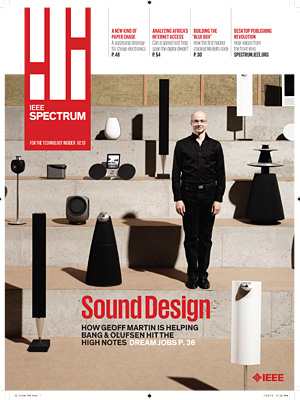Although mutations, the driver of evolution, occur at random, a study of the bacterium Escherichia coli reveals that nature often finds the same solution to the same problem again and again. Continue reading Predictable evolution trumps randomness of mutations
Category Archives: Outlets
Bit loans
WANT to get some cash at automated teller machines in Nairobi? Don’t be surprised by the guards with machine guns. ATMs attract plenty of muggers and pickpockets.
Unsurprisingly, cashless transactions have been catching on fast in Nairobi and elsewhere in Africa. Microfinance organisations were among the pioneers. In Kenya, for instance, they started using M-PESA, the popular mobile money service, to hand out loans to small-time businesspeople in 2008, soon after its launch.
Musoni, a Kenyan microfinance firm with more than 10,000 customers and over $6.3m in loans since its launch in May 2010, is now taking the idea even further: in an effort to bypass banks and make microfinance more efficient, it has gone completely cashless—a worldwide first, claims Cameron Goldie-Scot, the firm’s chief operating officer.
Plugging In to Plant Roots
 Cast-off electrons in a plant’s roots can provide electricity, a Dutch team reports. Now, through a spin-off company, it hopes to grow grassy generators on rooftops and promote decentralized electrical production in wetlands in developing countries.
Cast-off electrons in a plant’s roots can provide electricity, a Dutch team reports. Now, through a spin-off company, it hopes to grow grassy generators on rooftops and promote decentralized electrical production in wetlands in developing countries.
Plants exude a variety of waste products that microbes consume, such as glucose, acetate, butyrate, and propionate. The underground interaction leaves spare electrons in the surrounding soil and water, which researchers—led by Bert Hamelers at Wageningen University, in the Netherlands—began tapping in experiments in 2007. They were already working on using so-called microbial fuel cells (MFCs) to treat wastewater when they realized that plant roots improved the performance of the fuel cells. Continue reading Plugging In to Plant Roots
App’d to Fail: Mobile Health Treatments Fail First Full Checkup
Health care via mobile technology is still in its infancy. Of 75 trials in which patients used mobile tech, such as text messaging and downloadable apps, to manage a disease or adopt healthier behaviors, only three showed reliable signs of success, according to a systematic survey. In an accompanying survey of medical personnel who used smart phones and other devices, to help deliver care, the same team found more success: 11 of 42 trials had positive, reliable results. Continue reading App’d to Fail: Mobile Health Treatments Fail First Full Checkup